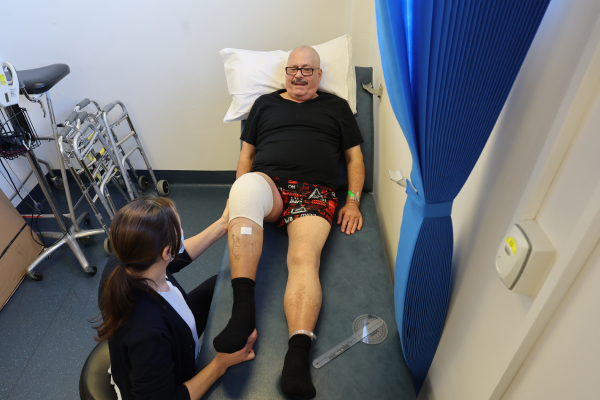About
How to optimise your recovery after elective surgery
- Home
- About
- Latest news
- How to optimise your recovery after elective surgery

25 March 2024
Did you know that you might be able to improve the safety and results of your own surgery?
While waiting for planned surgery, there are several things people can do to prevent problems and improve outcomes after surgery, and the same applies after surgery.
Quit smoking (and/or vaping)
While smoking causes many problems, when it comes to surgery, smoking:
- Increases the chance of heart or breathing problems during and after surgery
- Can prevent or slow healing, and increases the chance of infection.
Quitting before surgery (at any time, but especially more than a few weeks before surgery) has been shown to significantly reduce the risk of having any complication after surgery, and in particular reduce the risk of infections after surgery. The earlier someone quits, the more beneficial this is, and the benefits aren’t just shown in the immediate recovery period, but longer term as well.
So, if you are waiting for an operation - there is no better time to quit!
Quitting smoking isn’t easy, but Quitline and your General Practitioner (GP) are there to help, and some operations can be safely delayed in order to allow people to quit smoking – so ask your treating team if that applies to you.
Keep other health problems under control, and tell us if anything changes
Often, the reason for surgery is not a patient’s only health problem, and poor control of chronic diseases can increase the risk of problems during or after surgery. This is true for many diseases, but particularly those affecting the lungs (such as asthma or sleep apnea), or the heart, or diabetes.
If you’re waiting for surgery, take your medications regularly, see your GP or treating team as required and let us know about any important changes to your health.
Keep moving!
Patients who are more active before their surgery are less likely to have complications during or after their operation. This allows them to get home and back to regular activity sooner.
Early mobilisation after surgery is now recognised as a very important way to improve recovery. It promotes blood flow, helps to prevent blood clots like Deep Vein Thrombosis (DVT) and maintains muscle strength.
If you have surgery on the horizon, keep moving and exercising at your level unless instructed otherwise by your healthcare professional. Speak to your GP about an exercise plan to help you keep moving.






